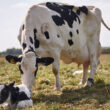By Maricho Reporter

There is need to work with those impacted by food insecurity if Zimbabwe is to move beyond a cycle of dependence, World Food Programme (WFP) Representative and Country Director, Francesca Erdelmann has said.
Addressing an occasion to mark the World Food Day 2021 in Harare, Thursday, Erdelmann said only by working together can Zimbabwe build strong food systems.
“We know that even in remote areas, people are in fact able to find solutions to a better life. Communities can be productive, understand the value of nutrition to their wellbeing and sustain the environment, if we enable them with the skills and resources they require,” Erdelmann said.
Every year on 16 October, people from more than 150 countries come together with a common goal to raise global awareness and action to end hunger and ensure healthy diets for all.
This year’s commemorations are running the theme: Our actions are our future. Better production, better nutrition, a better environment and a better life.
About four years ago, WFP and its partners supported the Mola community, Kariba district through Food Assistance for Assets activities, which have made all the difference. Situated close to the Zambezi River and next to a national park, many of the women recall the challenges in finding food before the community garden was established, in addition to the very immediate dangers of wild animals.
“They say that food was scarce, children were often sick, and it was dangerous to walk across villages in search for food. We know that food and nutrition security in these remote areas can be a real challenge, but resilience-building projects offer genuine pathways to a better life,” said Erdelmann.
While receiving food assistance during the lean season, the community was provided resources to rehabilitate assets. They decided to develop a nearby spring that would provide sustainable supply of water. After some years of training and development in agriculture, conservation and better nutrition practices, the garden has flourished. The women now independently maintain the garden which feeds up to 52 households and over 250 individuals in the area. They rotate the crops every season to protect the soil and they expanded the variety of fruits and vegetables, thus diversifying their diet.
“It is important to design such programmes together with communities, finding local solutions to local challenges. Much like this garden in rural Kariba district, the community fully established and maintained the springs and garden. Their efforts are an inspiration to neighbouring villages who are keen to replicate the experience,” she added.
The United Nations, development partners, international finance institutions, private sector and civil society play a pivotal role in implementing national pathways to 2030 that are inclusive and consistent with environmental commitments achieving the common goal of Zero Hunger.
“In Zimbabwe we work closely in partnership with government to revitalize the farming and entrepreneurial interest in drought resistant grains such as sorghum and millet among small holder farming communities. This strong collaboration is made even more successful by South-South collaboration with China and India, who have provided strong expertise in these areas,” she added.
“Similarly, our collaboration with United Nations Development Programme (UNDP) and the Government of Zimbabwe through the Green Climate Fund is significant to resilience building efforts. Collectively we work towards improving national climate information systems and services, to support decision making by small holder farmers which, when combined with improved water management, can be a great support to climate smart agriculture. This is a new endeavour for all of us, and we will be monitoring this project closely to ensure we provide the most impact to communities and the environment.”
Addressing the same occasion Food and Agriculture Organisation (FAO) Sub-regional Coordinator for Southern Africa and FAO Representative to Eswatini, Lesotho and Zimbabwe Dr Patrice Talla said his organisation is working closely with the government to ensure that people have regular access to enough high-quality food to lead active and healthy lives.
“I am pleased to inform you that together with government and our partners we have enhanced the food and nutrition security of targeted populations in Zimbabwe and contributed to achieving a prosperous, sustainable and competitive agriculture sector.
“Specifically FAO projects have raised agricultural productivity for thousands of small holder farmers, increasing livestock offtake rates, crop yields and households’ incomes. FAO efforts to promote biofortification have increased the production and consumption of bio-fortified crop varieties, contributing to reduce the proportion of food insecure households, and enhancing dietary diversity. Through FAO’s strategy on financial inclusion, thousands of smallholder farmers have obtained increased access to and use of loans,” said Dr Talla.
FAO is also supporting households affected by Cyclone Idai to build their resilience in line with build back better principles. The scope of activities include provision of high yielding crop inputs, restocking of small livestock, regular dipping and vaccination programmes, rehabilitation of dip tanks, irrigation schemes and enhanced market access.
In the animal health delivery sector, FAO supported the review of the veterinary college curriculum to align with international best practices. The curriculum is now in use at Mazowe Veterinary College. Furthermore the curriculum for Environmental Health Technicians has been reviewed and has been adopted for use starting in January 2022.
The impacts of direct and indirect exposure of pesticides on people and the environment are detrimental, as such, FAO is supporting the identification of highly hazardous pesticides currently registered and used in Zimbabwe –a critical step in ensuring safer food systems with lesser risk to human health and the environment while ensuring sustainable development and international trade.











